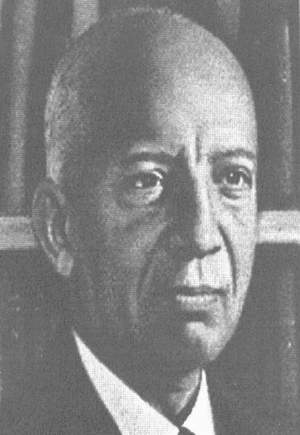
Carter G. Woodson (1875-1950), Berea, KY
Carter G. Woodson was an author, educator and human rights activist who is best known as the Father of National Black History Month. Dr. Woodson is a graduate of Berea College, which was founded in the 1800s by John G. Fee as an institute of higher learning for blacks and whites. Dr. Woodson later campaigned for Negro History Week as a way to instill pride in African Americans. He chose February because Abraham Lincoln and Frederick Douglass both had birthdays during the month. Dr. Woodson's idea became popular and was expanded to include the entire month of February, which is now officially recognized as the United States Black History Month.
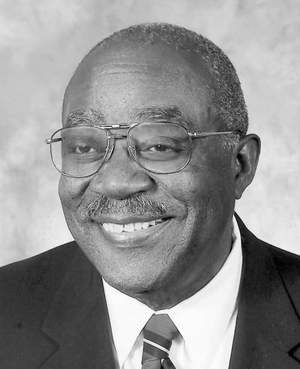
Robert A. Coleman, Paducah, KY
Mr. Coleman, a lifetime member of his local NAACP chapter, has served as a city commissioner in Paducah since 1973, including six years as mayor pro tem. As a city commissioner for more than 25 years, he was at the forefront of major civil rights changes in Paducah. He helped the city hire its first black police and fire chiefs. He was the first African American director of personnel and director of solid wastes and the first black director of building maintenance and 911 emergency communications. Mr. Coleman was the first African American to serve as president of the Paducah Local of the National Association of Letter Carriers Union and the first to serve as chairman of the executive board of the Kentucky State Association of the National Association of Letter Carriers.
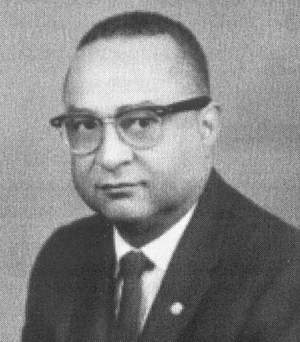
Dr. Maurice F. Rabb (1902-1982), Louisville, KY
Dr. Rabb was the first black physician accepted for membership in the Jefferson County Medical Society. He served on the staffs of Jewish Hospital and St. Joseph Infirmary. He had a private practice in Shelbyville after coming to Jefferson County in 1946. Dr. Rabb was a charter member of the Kentucky Civil Liberties Union and was a vice president of the NAACP in Louisville. He fought against laws that segregated people and for laws that promoted the hiring and promotion of blacks. He was a member of the Louisville Human Relations Commission.
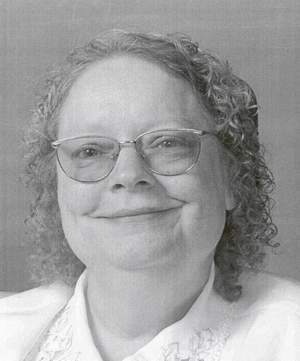
Cass Irvin, Louisville, KY
She is a disability rights advocate and author who lobbied the 1984 General Assembly to create the Personal Care Attendant Program for people with disabilities. Ms. Irvin frequently drove her wheelchair a quarter of a mile through rain, snow and cold, in order to take a van to travel from Louisville to Frankfort, to fight for passage of the law. She earned a teaching degree in 1969, but encountered discrimination in public schools that refused to let someone in a wheelchair become a student teacher. She earned a master's degree from the University of Louisville in the early 1970s, but found that the college had numerous obstacles, including no automatic doors, and inaccessible classrooms and buildings. She became a board member of the Action League of Physically Handicapped Adults (ALPHA) in 1976, and has been fighting for better access and treatment for people with disabilities ever since. She has served as a member of the Kentucky Arts Council Standing Civil Rights Advisory Committee.
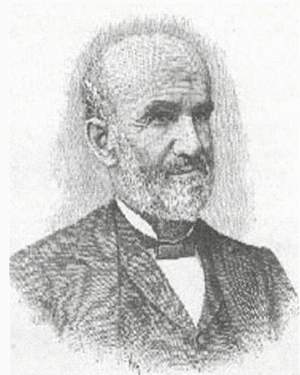
John G. Fee (1816-1901), Berea, KY
Mr. Fee founded Berea College in 1859 as a co-educational institution that would admit men and women, black and white, at a time when slavery was legal in Kentucky. Mr. Fee was an abolitionist who was born in 1816 in Bracken County, Ky. His family members were farmers who owned slaves. However, he later attended seminary and preached against the institution of slavery. Berea, the town in Madison County he helped found in 1854, became a center for abolitionist activity. He was driven out of Berea in 1859 by pro-slavery sympathizers but returned in 1865. During his lifetime, Mr. Fee insisted that blacks and whites, men and women, learn in the same classroom and participate in the same social clubs and activities. He said that racial equality should be preached and practiced.
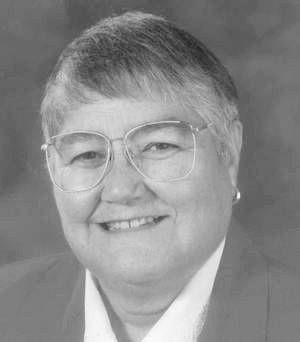
Sister Lupe Arciniega, Nerinx, KY
For more than 50 years, Sister Lupe has been an educator and defender of migrant farm workers and immigrants in countries such as Bolivia, Peru and the United States. She is a member of the Sisters of Loretto. She has worked with Cesar Chavez in California to improve conditions for the United Farmworkers. In 1988, Sister Lupe began her work in Kentucky through her affiliation with Catholic Charities Rural Ministries. She has helped Hispanics, most recently in the Elizabethtown and Hodgensville areas, obtain fair wages, health care, housing and child care.
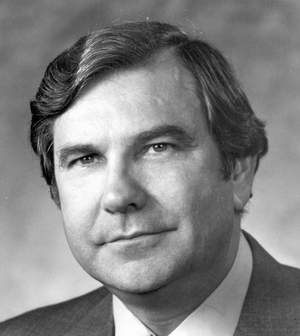
Sen. Walter “Dee” Huddleston, Elizabethtown, KY
He is the U.S. Senator (1973-1985) and state senator who spent his career championing the rights of minorities, women erve all races during the 1960s and the disabled. He urged restaurants to sand asked churches to admit people of different colors as members. He co-sponsored an Open Housing law as a state senator. He led efforts in Kentucky to pass the Equal Rights Amendment. He helped honor Muhammad Ali in a program in Washington, D.C.
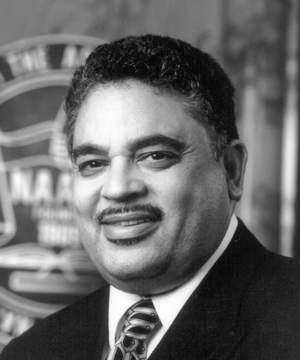
John J. Johnson, Baltimore, MD
Mr. Johnson is a former president of the Franklin-Simpson County Branch of the NAACP. He currently serves as the Chief Programs Officer for the National NAACP. He has worked for the Kentucky Commission on Human Rights as well as the Louisville and Jefferson County Human Relations Commission. He has traveled the world on behalf of the NAACP to improve human rights and fairness. He directs programs to help military veterans, spur economic development for poor people, increase voter registration, encourage young entrepreneurs, and foster humane treatment for prison inmates. He has fought discrimination against African American military personnel in Germany and has made humanitarian visits to Zimbabwe, Africa.
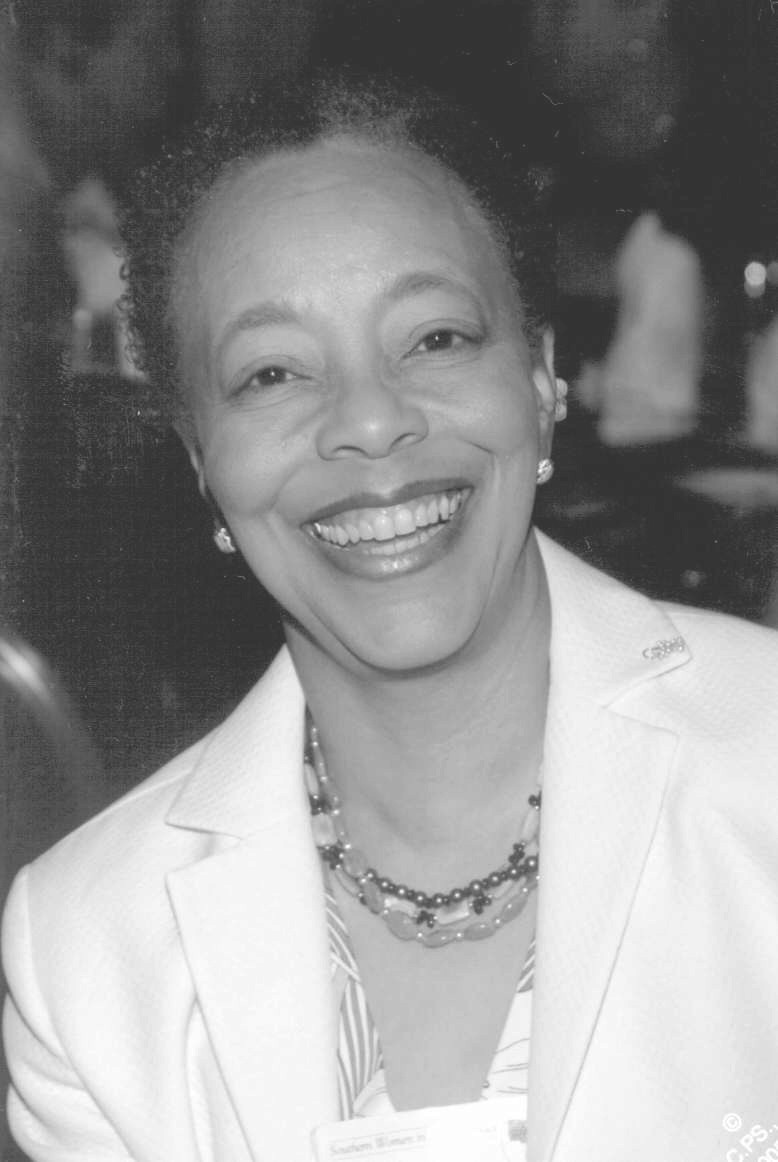
Beverly L. Watts, Louisville, KY
Ms. Watts was the executive director of the Kentucky Commission on Human Rights from 1992-2004. She is the executive director of the National Fair Housing Training Academy in Washington, D.C. She established the Kentucky Civil Rights Hall of Fame in 2000 to celebrate the achievements of men and women who served as role models and beacons for civil and human rights. She pushed for stronger ties with local human rights commissions; led a hate crimes commission that consisted of state, local and federal officials; shortened the amount of time it took to close discrimination cases; and, established a number of educational and social awards tied to the Dr. Martin Luther King, Jr. Holiday. She organized a commemorative program in 2004 to mark the 1964 Civil Rights March on Frankfort that was led by Dr. King.
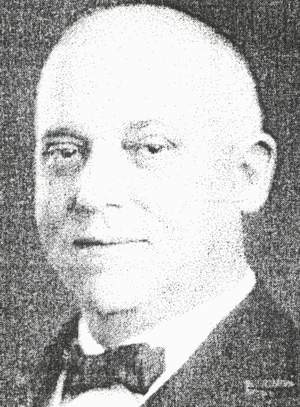
Gov. Augustus O. Stanley (1867-1958), Shelbyville, KY
Augustus O. Stanley was elected governor of Kentucky in 1915. He also served nearly six years as a U.S. Senator. He was an advocate for women's rights and the Worker's Compensation Act. He increased funding for Negro schools and opposed the Ku Klux Klan. He once came to the rescue of a black man who was pursued by a lynch mob, in 1917.
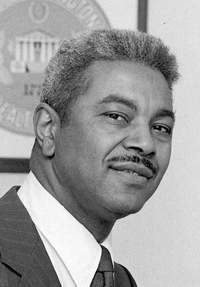
Harry N. Sykes, Lexington, KY
Mr. Sykes is active in the Lexington Urban League. He served four terms on the Lexington City Council, beginning in 1963. He was Lexington’s Mayor Pro Tem in 1967 after being the top vote getter during the election. He ran unsuccessfully for mayor of Lexington in 1971. He played professional basketball for the Harlem Globetrotters. He taught mathematics and served as assistant basketball coach at Dunbar High School in Lexington from 1954-1962. He was the first black to serve as acting manager and chief administrative officer for the City of Lexington from 1973-75 and was highly respected for his leadership in that capacity and for his success in attracting new business to Lexington. Many students and business people in Lexington also cited him as a role model.
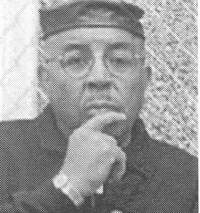
Dr. Joseph McMillan, Louisville, KY
Dr. McMillan is a community activist and a representative of the Citizens Against Police Abuse (CAPA). He is a retired professor of the University of Louisville. He was campaign manager for former Jefferson County Commissioner Darryl Owens. He was a commissioner for the Kentucky Commission on Human Rights. He worked to get African Americans hired in state and local government. He works to improve economic, social and political conditions for African Americans in Kentucky.

Robert Todd Duncan (1903-1998), Danville, KY
Todd Duncan created the role of Porgy in the classic musical, Porgy & Bess, which opened on 10 October 1935 in New York. Prior to that, he obtained a master's degree in voice from Columbia University. He sang in London, and was the first black artist to appear at the New York City Opera, in 1945. He retired from show-business in 1951, but continued a teaching and singing career that included over 2,000 performances in 56 countries. During his performance in Porgy & Bess in Washington, D. C., he led a strike that resulted in the National Theatre allowing an integrated audience for the first time. He was a Professor of Voice at Howard University in Washington D.C., and was recognized as an outstanding and dedicated teacher. He taught hundreds of black artists at the university and later as a private tutor from his home. teacher continued until just before his death.
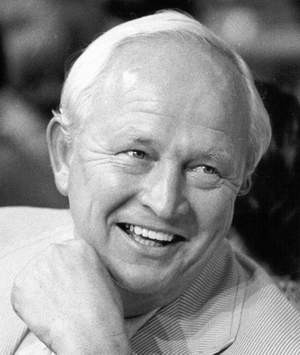
Norbert L. Blume, Louisville, KY
Mr. Blume was a Kentucky state representative. He spent 14 years in the Kentucky Legislature and was elected speaker of the Kentucky House of Representatives in 1972. During his public service , he supported The Kentucky Civil Rights Act and championed legislation in 1966, to give enforcement powers to The Kentucky Commission on Human Rights. He supported The Kentucky Fair Housing Law of 1968. A former union leader and employee of American Standard in Louisville, he helped resolve many discrimination cases in the workplace.